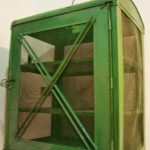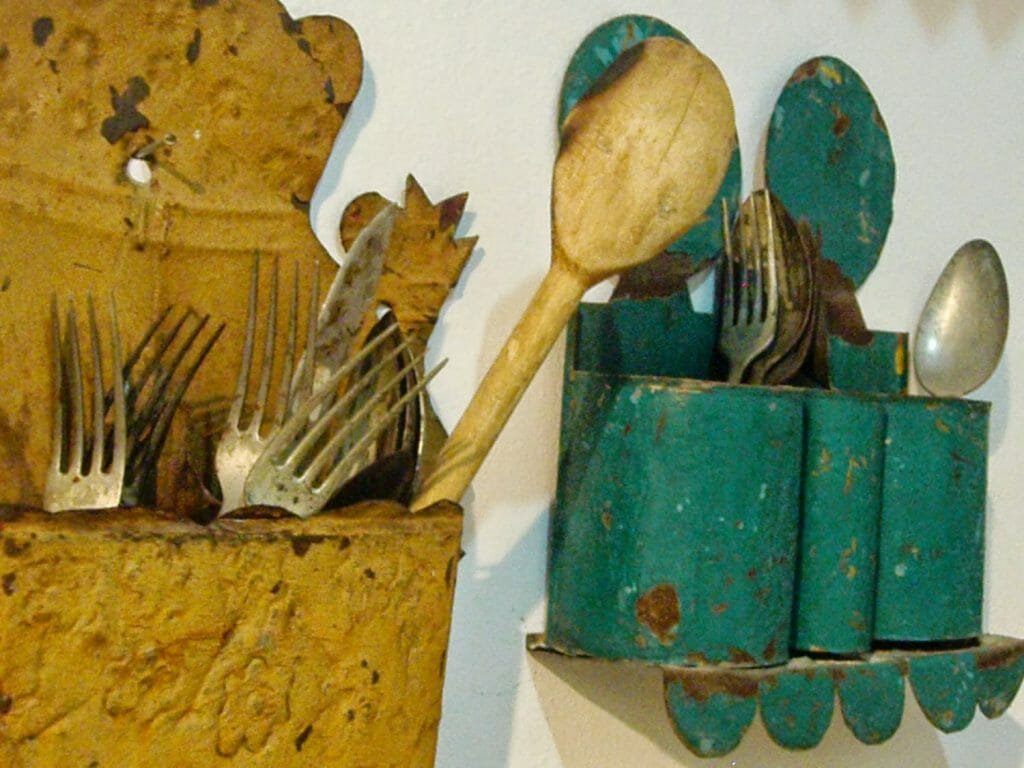
Of course, being a brocanteuse means that wherever I go I will always be on the lookout for a lucious item here or there. But on holiday in Crete I found intriguing Minoan sites and museums packed with artefacts – but no brocante.
I did find some solace however at the Folk Museum in Sitia – on a quiet street, in a green and ochre merchant’s house with courtyard front and back. I happened to be the only person visiting, so the tall, smiling, hazel-eyed curator came round with me. Why was there no brocante to be found? Arete (which means Virtue) explained that much of what was in the museum had little commercial value to Cretans, as, for example, clay jars had still been in use for carrying water in some places until recently. But if this museum had been a shop I would have bought most of its contents!
Traditionally a family lived in a one roomed house and so space and storage were critical. At one end of the room would be a raised bed with storage space beneath. Beds were made of boards which rested on trestles, so even the beds could be taken down and the boards used for making pastries and sweets. (Graham and I had found such a house in a ruined Medieval village, still with it’s mezzanine and a raised fireplace at the other end).
Strangely, some of the furniture, metal lanterns and mirrors had a French air about them. Arete said there had been a French administration in this Eastern part of Crete in the 19th century and as a result cultural links had been forged between the two countries.
The displays of linens were exquisite. The process of making linen thread was also explained. An old photograph showed a Cretan woman rubbing the dried linen grass down a board across a circle of nails to separate the filaments. It was fascinating to see, given how much I love linen sheets. I’ll also be having a go at dying fabrics using natural pigments from pomegranite skins and walnut skins.
We stopped in front of a collection of carpenter’s tools beneath a painted Carpenter’s shop sign. “The carpenter who gave his tools to us also wrote a poem to them,” said Arete. She translated it out loud for me: He was saying goodbye to them, looking at them with tears in his eyes. They had been like his children and he like their father. They had helped him put food on the table and money in his wallet, but now it was time for them to go on their separate journeys and he wished them well. We both wiped away a little tear ourselves.
Thank you, Arete, for an afternoon interlude that nourished the heart of a wandering brocanteuse.





